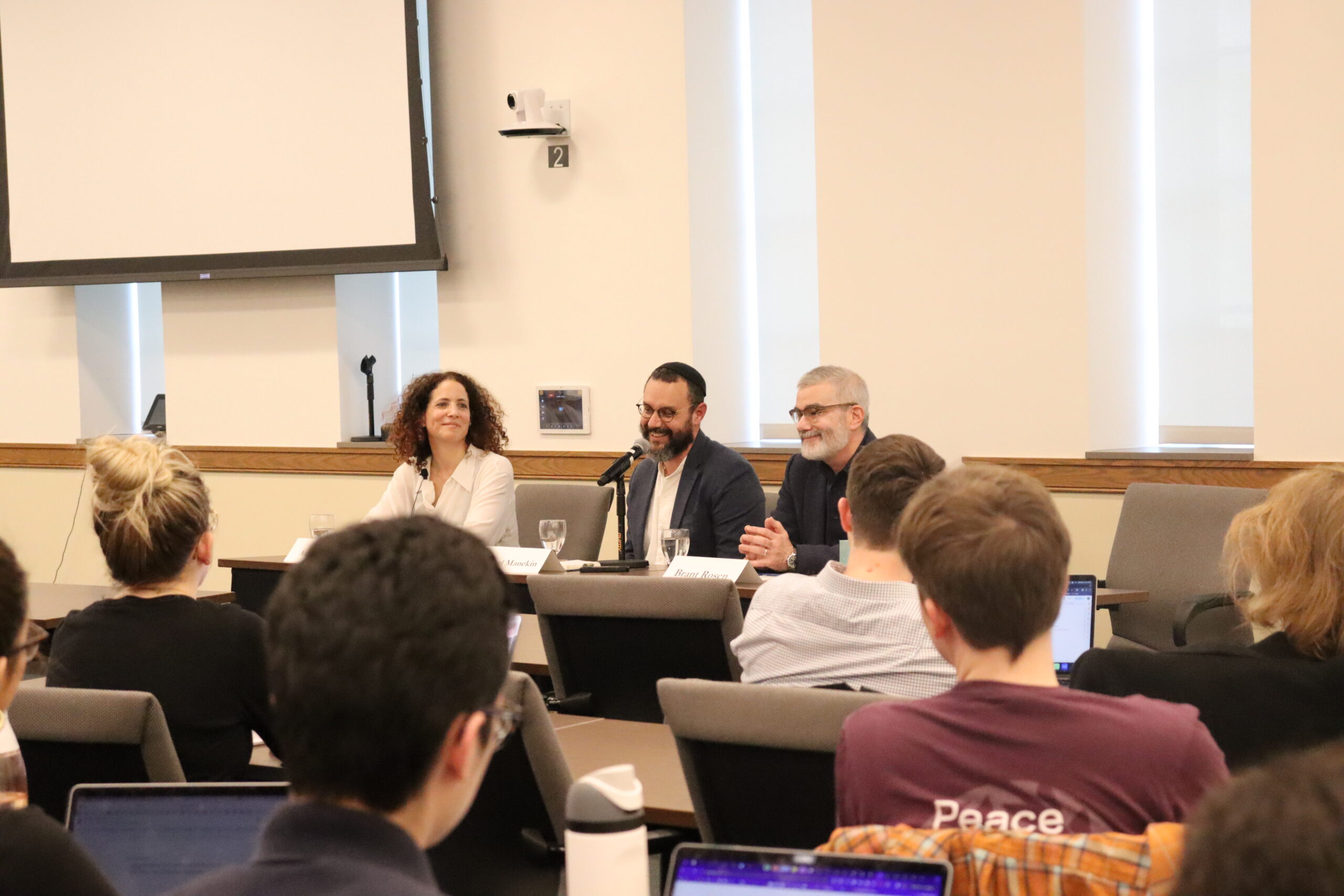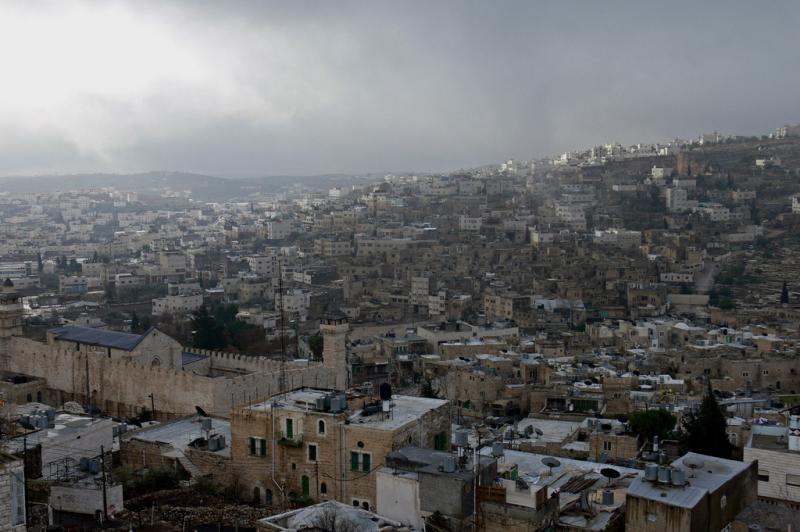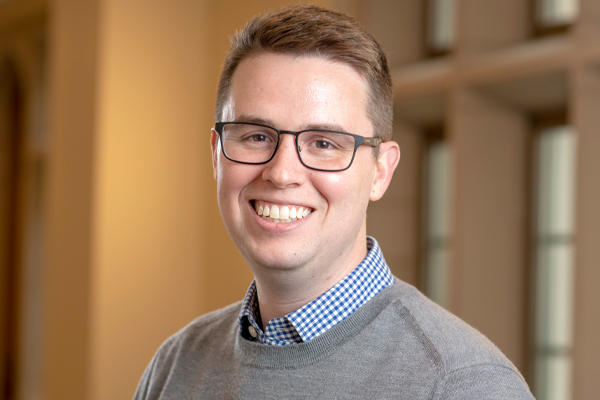
Introduction
On March 4, 2024, members of the Notre Dame community and wider South Bend public gathered together for a conversation on the relationship between Judaism and state power. Under discussion was Mikhael Manekin’s book End of Days: Ethics, Tradition, and Power In Israel. The author is a key organizer of a new Jewish Israeli movement called the Faithful Left. He also served as a former director of Breaking the Silence, an organization of Israel Defense Force veterans. Manekin was joined by Brant Rosen, the founding Rabbi of the anti-Zionist Tzedek Chicago synagogue and a co-founder and co-chairperson of the Jewish Voice for Peace Rabbinical Council. In a wide-ranging conversation, these two Jewish scholars and activists discussed the relation between state power and Jewish ethics, the place of land and home in the Jewish theological imagination, how their different positionalities shape their thinking, and the importance of rediscovering the Jewish tradition as one that is informed by a longer and more dynamic history than modern Zionism suggests.
In her introductory remarks, Professor Atalia Omer noted that the death toll from Israel’s assault on Gaza then stood at more than 30,000 and has since increased to more than 35,000. This number, along with the 1200 that were killed in Israel on October 7th, 2023, Professor Omer noted, required us to engage in difficult conversations about the history of occupation, the ongoing Nakba, and the role of religion in the conflict. Just a few days prior, on February 29, 2024, in what has been called the flour massacre, Israeli soldiers opened fire on desperate Palestinians who had gathered to collect aid from a truck convoy, killing 118 people and injuring at least 760. This tragedy, along with Prime Minister Netanyahu’s continued claim that it would be necessary to invade Rafah, where so many Palestinians from the north of the territory had fled, lent the conversation renewed importance. Faced with an unfolding genocide in Gaza the conversation offered an intimate window into the internal contestations within the Jewish community by two prominent members of that community. Despite their differences, both strive for Palestinian equality and ground their visions in the Jewish ethical tradition.
Judaism, State Power, and Positionality
In End of Days, Manekin aims to recover the gentler tradition of Jewish virtue ethics that has been lost in the twentieth and twenty-first century to a militant and chauvinist version. This loss occurred as a result of the establishment of the State of Israel via the Zionist movement and the absorption of Jewish religiosity into machinations of state power. A key difference that emerged between Manekin and Rosen through the course of the conversation concerned how those critical of Israeli policies should relate to the modern Zionist movement, a movement focused on the establishment of a nation-state which would place Jews in a position of power rather than “weakness.” For both speakers, it was quite clear that the right-wing Zionist ideology currently shaping Israeli politics was one that needed to be challenged and called out for its racist and apartheid policies towards the Palestinians. This means challenging those whose “loyalty is not to the tradition, but an ethnic state” (80). For Manekin, however, leaving Zionism behind entirely was not an option. This is because in his position as an Israeli, for whom Zionism was a “lived experience,” one could not simply ignore it or critique it from afar. It is the “air” one breathes, the very logic behind his family’s presence in Israel. The structures that govern his life, in other words, were saturated in Zionism. For Rosen, on the other hand, Zionism was something he knew only through his experience growing up in a Jewish household in the US and on extended visits to Israel. While support for the State of Israel was encouraged in his community, the wider political structures that governed his life were not shaped by Zionism in the same way as a citizen living under US law. This difference made possible the creation of an anti-Zionist synagogue that would largely be unimaginable in Israel. Here, then, the positionality of each interlocutor laid bare the possibilities and limits of their theopolitical imaginations.
For Manekin, however, leaving Zionism behind entirely was not an option. This is because in his position as an Israeli, for whom Zionism was a ‘lived experience,’ one could not simply ignore it or critique it from afar.
Rosen and Manekin spoke of a shared desire, nonetheless, to recover a Judaism that de-centers force, domination, and revenge. Those characteristics are the upshot of Christian European modernity, one which underpins the reduction of Jews into a statist project and claims to offer a redemptive storyline at the intersection of the Shoah and the Nakba. Rather than power, they advocated for a Judaism of humility; rather than sovereignty and domination, they argued that Jewish teachings require followers to side with the marginalized and oppressed. For Rosen, these commitments have meant organizing and putting pressure on elected officials to stop funding the Israeli government’s war efforts and occupation. For Manekin they likewise have meant organizing and putting his body on the line to defend Palestinians who face dispossession from their homes and livelihoods. These actions are rooted in a vision of Judaism centered on the uplifting of the marginalized against those who would cynically wield power in the name of God. Manekin notes, “Viewing government decisions as an expression of God’s will subordinates God to the will of the political ruler and prevents the religious person from discerning this will” (111).
The Loss of Tradition
For both Rosen and Manekin, what often goes by the name of the “Jewish tradition”—both in Israel and in the diaspora—has been shaped by a recent ahistorical rendering of the past. In his comments during the conversation and in End of Days, Manekin demonstrates how prominent rabbis and scholars in Israel have reread the centuries, if not millennia, of tradition so that it conforms to the modern Zionist project in Israel. In doing so, however, they often ignore the vast majority of rabbinic commentary that might challenge their reading. For example, in critiquing one modern rabbi’s interpretation of the Torah to justify the killing of innocent children in defense of the state of Israel, Manekin writes,
Rabbi Yisraeli’s interpretation has no precedence in traditional halakha; the entire tradition pushes in the opposite direction, that is, towards the view that it is forbidden to kill innocent people for revenge. So why does he depart from the rabbinic tradition and treat it as irrelevant? Because of his desire to justify the sovereign State of Israel and its military activities (48).
Such examples reveal, Manekin suggests, the hollowness of the so-called tradition espoused by many on the religious/political right in Israel today.
Rosen also lamented the way that a focus on buttressing the modern State of Israel has sidelined more liberative readings of the Jewish tradition. He suggested that it was in diaspora that what is now thought of as the “classical” Jewish tradition flourished and that the ethics and values built during this period were being lost because of the subsuming of the Jewish community to the State of Israel. Unlike those who see a sacred connection between God and the land on which the modern state of Israel sits, for Rosen, “God is with us wherever we go.” While Manekin would not necessarily disagree with this claim, he does maintain that there is a holiness to the land that cannot be replaced in diaspora settings.
Land and Home
A common thread running throughout the entire conversation concerned the location of home and the role of land in the Jewish theopolitical imagination. As already noted, for Rosen, Jews develop a unique sense of home wherever they are in diaspora. This connects to the Bundist concept of Doykayt, which animates much of the reclaimed anti-Zionist Jewish tradition born in Eastern Europe. Indeed, Tzedek Chicago, a self-defined anti-Zionist synagogue, embodies this ideal by itself congregating in different physical spaces across the city and in its online platform.

Even as Manekin agrees with Rosen that traditional Jewish practice—i.e., living out the ethics and norms in practice that have been developed over the centuries of interpretation of the Torah and rabbinic texts—has been lost in the era of the Jewish nation state (see 16–17 in End of Days), he remains tied to the land in a way that is different from Rosen. For Manekin, there are sacred sites in the land of Palestine/Israel that remain central to his religious practice and identity. As he was careful to note however, retaining access to these sites does not require that they be held by a Jewish ethno-nationalist state, with its neoliberal logic of ownership. They could also be retained in a binational state where one group’s access to the land is not precluded on another group’s exclusion from it. Here, Manekin reminded the audience that there is no singular theory of land, and that ideas of “ownership” are not the only way to understand our relation to it. Indeed, such conceptions of exclusionary ownership claims are grounded in modernist ideas about sovereignty that misread how the interpreters of the Jewish tradition across millennia connected to the land.
Conclusion
By way of conclusion, we might note that the push and pull between tradition, nationalism, and a connection to land is not unique to Jews nor to the state of Israel. Indeed, within US Christianity there are those who desire to step back from exercising state power in the name of protecting the prophetic role of the Church, while in India the dominant political party in power wishes to create a Hindu nation state that reshapes classical Hindu traditions in the name of state power.
None of these examples are perfect mirrors to Palestine/Israel, nor to each other, yet they form a pattern that is indicative of how modernity has shaped the relationship between religion and state power. What that pattern reveals is that allowing religion to be hollowed out by the institutions of the state—either by conservative religious nationalists or neoliberal secularists—will not result in the liberation of the oppressed, but rather their marginalization by other means.

